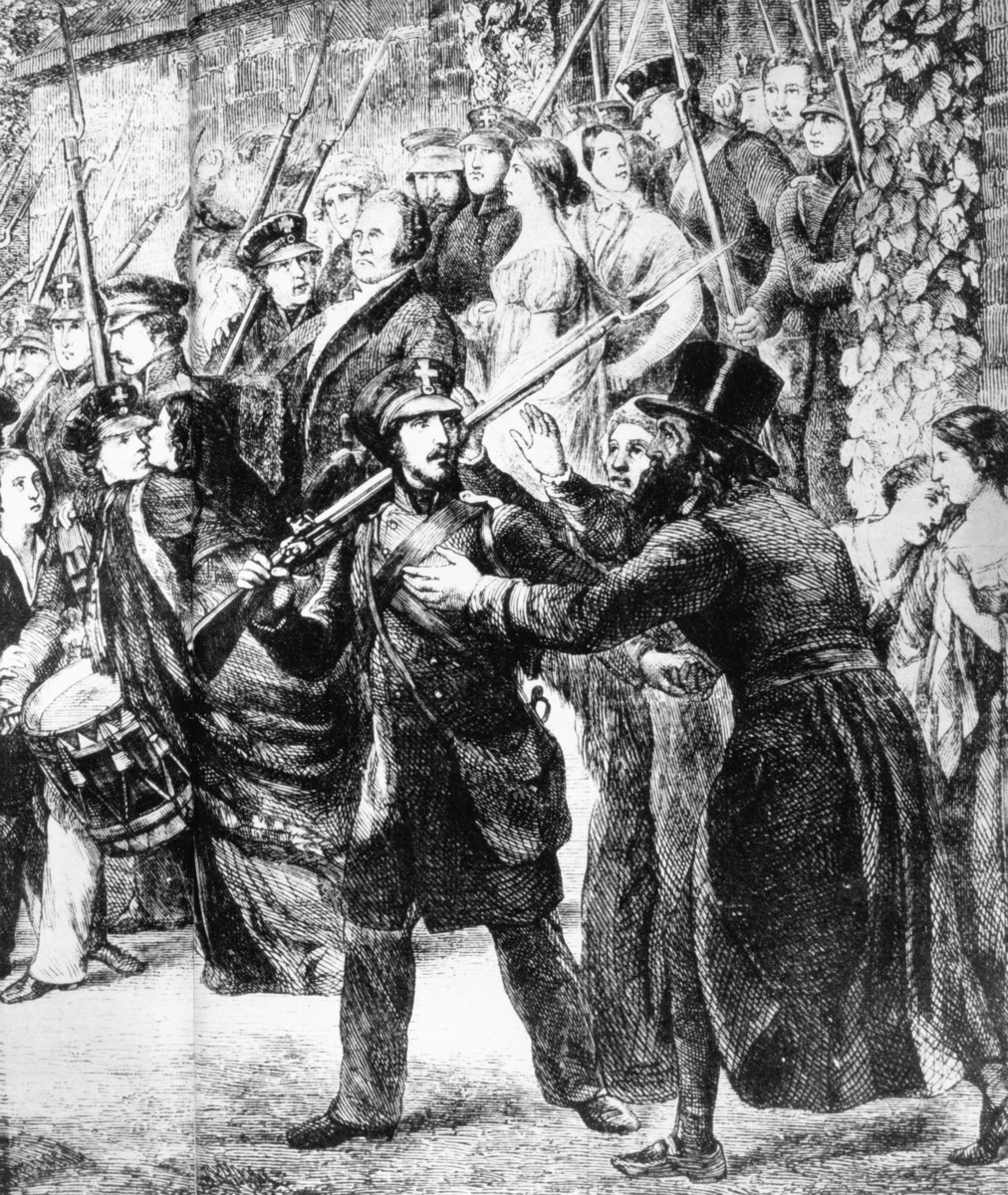Departure of Jewish Volunteers (c. 1813)
Abstract
Jewish men volunteered to fight for Prussia against France. In doing so, they satisfied an essential requirement of Germanness and masculinity—even if soldierly masculinity was not yet the sole or even the dominant ideal at this time. Over the course of the 19th and early 20th centuries, however, Jewish Germans placed increasing importance on the performance of military service, which they viewed as critical to their sense of self. This was because questioning Jewish Germans’ courage or their ability to fight—and thereby questioning their Germanness—was a perennial anti-Jewish tactic.
Source

Source: Departure of Jewish Volunteers, c. 1813. Jewish soldiers fighting in the Napoleonic Wars. In the foreground, Jewish parents bid farewell to their son. Contemporary woodcut. Gidal-Bildarchiv Nr. 839. Salomon Ludwig Steinheim-Institut für deutsch-jüdische Geschichte, Essen.
Gidal-Bildarchiv. Salomon Ludwig Steinheim-Institut für deutsch-jüdische Geschichte, Essen.
Further Reading
Hans Peter Herrmann, Hans-Martin Blitz, and Susanna Moßmann, eds., Machtphantasie Deutschland. Nationalismus, Männlichkeit und Fremdenhaß im Vaterlandsdiskurs deutscher Schriftsteller des 18. Jahrhunderts. Frankfurt am Main: Suhrkamp, 1996, pp. 123–59.